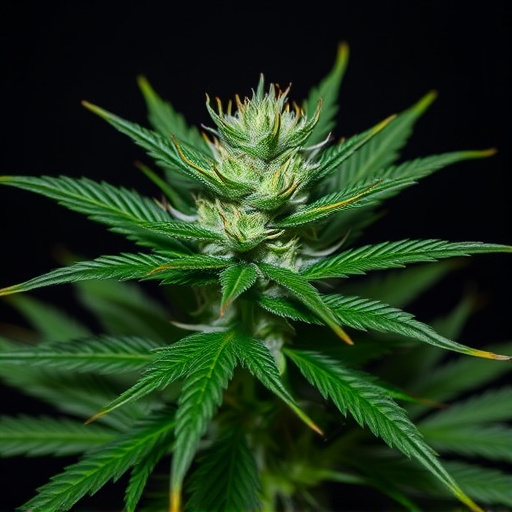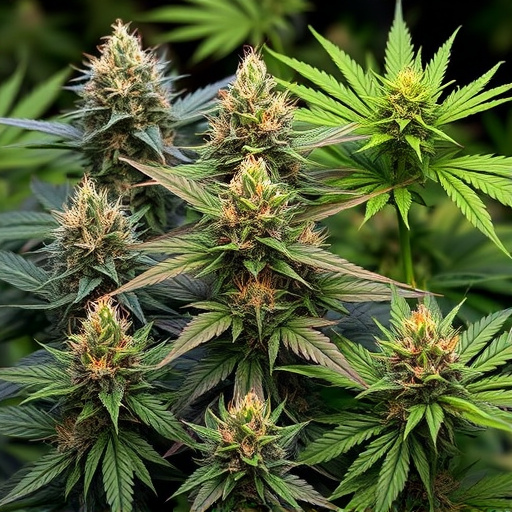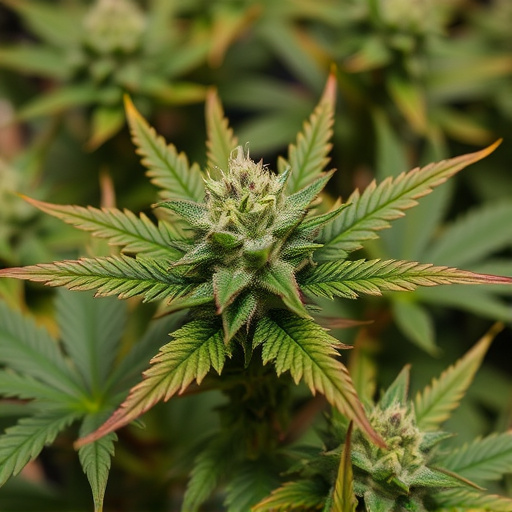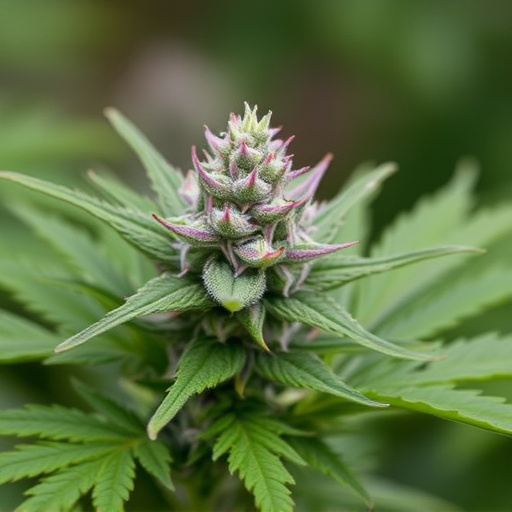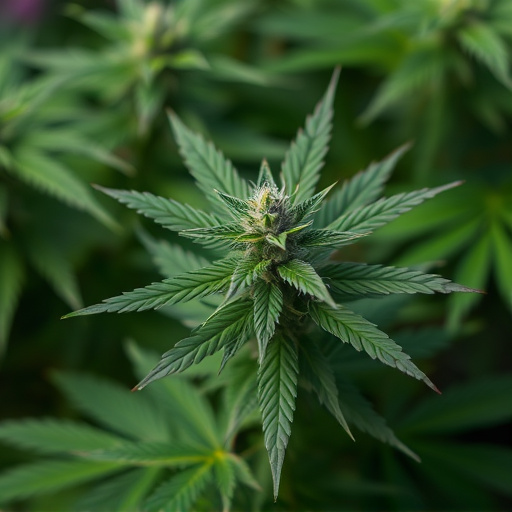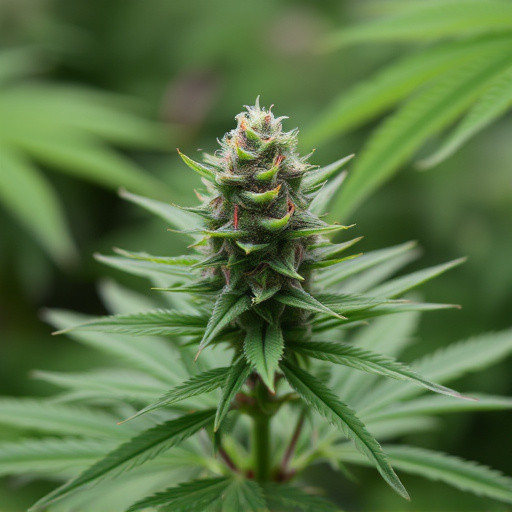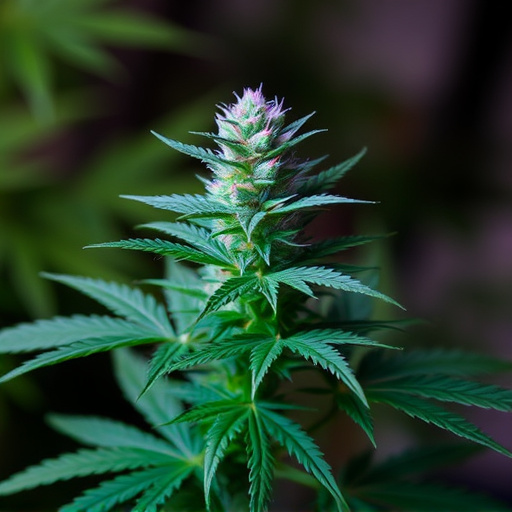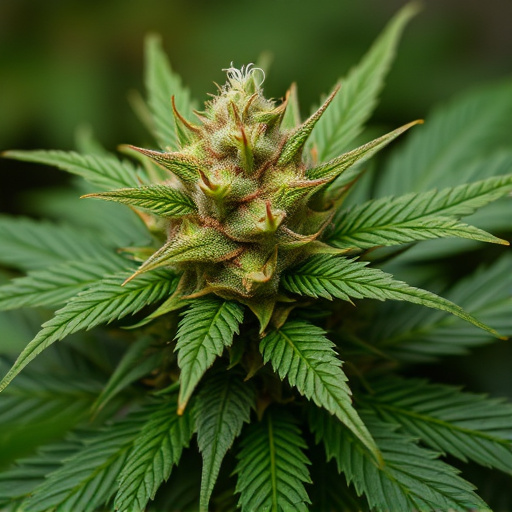Cannabis compounds THC (tetrahydrocannabinol) and CBD (cannabidiol), both found in various strains, offer hope for managing fibromyalgia symptoms. While THC induces euphoria, non-psychoactive CBD interacts with the body's endocannabinoid system to reduce pain, inflammation, and sleep disturbances. High-CBD strains like Hemp and Charlotte's Web are recommended for fibromyalgia sufferers seeking alternative relief from muscle spasms, joint pain, and anxiety without psychoactive effects. However, individual responses vary, and consulting healthcare professionals is crucial before using cannabis as a treatment.
“Unraveling the science behind THC and CBD’s role in pain management offers hope for those suffering from chronic conditions like fibromyalgia. This natural compound, found in specific cannabis strains, has shown promise in mitigating pain perception. Our article explores how these compounds interact with our bodies, delving into cannabis strains particularly effective for fibromyalgia relief. We’ll also discuss the potential benefits and considerations for implementing these natural solutions in chronic pain management.”
- Understanding THC and CBD: The Role in Pain Perception
- Cannabis Strains for Fibromyalgia: A Targeted Approach
- Potential Benefits and Considerations for Chronic Pain Management
Understanding THC and CBD: The Role in Pain Perception
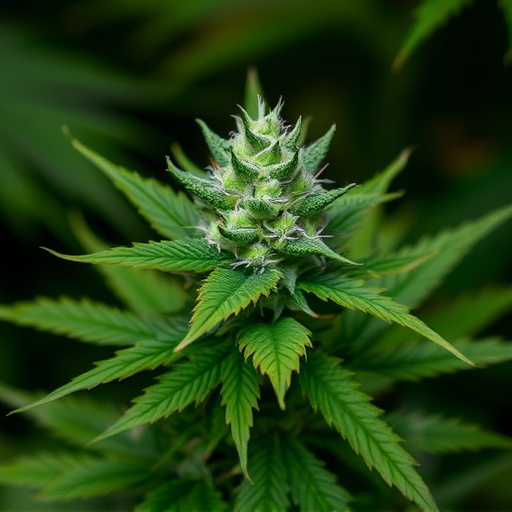
Cannabis compounds THC (tetrahydrocannabinol) and CBD (cannabidiol) have garnered significant attention for their potential in pain management, especially when it comes to conditions like fibromyalgia. While THC is known for its psychoactive effects, causing feelings of euphoria, CBD lacks these psychotic properties, making it a popular choice for those seeking relief without the high.
THC and CBD interact with our body’s endocannabinoid system (ECS), which plays a crucial role in regulating pain perception, mood, appetite, and sleep. The ECS uses endogenous cannabinoids, such as anandamide, to communicate between cells. Cannabis compounds mimic these natural chemicals by binding to specific receptors, modulating the transmission of pain signals, and potentially reducing inflammation—key factors contributing to fibromyalgia symptoms. Thus, understanding how THC and CBD interact with our body’s natural systems offers valuable insights into their role in managing chronic pain conditions like fibromyalgia.
Cannabis Strains for Fibromyalgia: A Targeted Approach
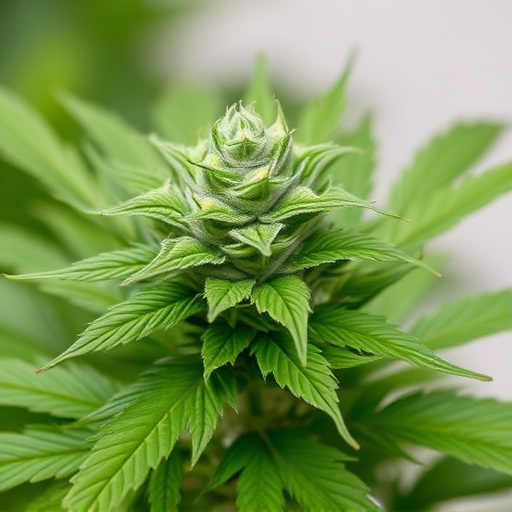
Fibromyalgia is a complex condition characterized by widespread pain, fatigue, and sleep disturbances. When it comes to managing fibromyalgia symptoms, cannabis has emerged as a promising treatment option. Specific cannabis strains are known for their potential to alleviate pain and improve overall well-being in individuals with fibromyalgia.
Certain cannabis strains, high in Cannabidiol (CBD) and low in Tetrahydrocannabinol (THC), have gained attention for their targeted approach to pain management. CBD is non-intoxicating and has anti-inflammatory properties that can help reduce muscle spasms and joint pain associated with fibromyalgia. Strains with higher CBD content, such as Hemp, Charlotte’s Web, or specific medical cannabis varieties, are often recommended for their ability to provide pain relief without the psychoactive effects of THC. These strains may offer a more subtle and targeted approach to managing fibromyalgia symptoms, allowing individuals to find much-needed relief while maintaining clarity and control.
Potential Benefits and Considerations for Chronic Pain Management
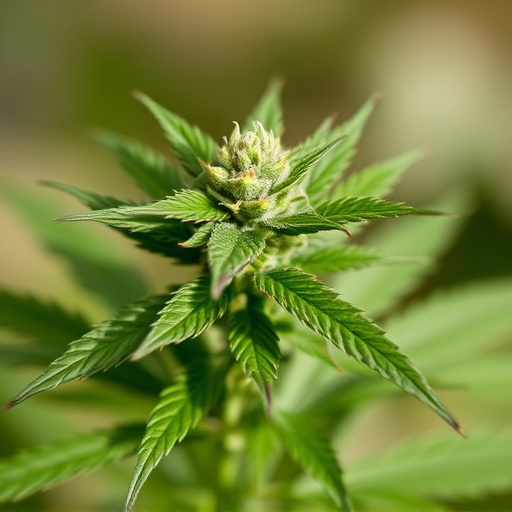
The potential benefits of THC and CBD for chronic pain management have sparked interest in both medical and recreational circles, especially with cannabis strains for fibromyalgia gaining attention. These compounds found in the cannabis plant interact with the body’s endocannabinoid system (ECS), which plays a role in regulating pain perception and inflammation. For individuals dealing with chronic conditions like fibromyalgia, this interaction could offer new avenues for symptom relief.
While research continues to explore the full scope of their effects, early indications suggest that THC and CBD may help reduce pain, improve sleep, and manage anxiety associated with chronic pain disorders. Some cannabis strains known for their analgesic properties include those high in CBD, which has shown promise in reducing muscle spasms and inflammation without the psychoactive effects of THC. However, it’s crucial to approach these natural remedies with caution and consult healthcare professionals, considering individual responses vary and potential side effects or interactions with other medications.
THC and CBD, two prominent compounds in cannabis, offer promising avenues for pain management, particularly in cases like fibromyalgia. By targeting specific receptors in the body, they can help regulate pain perception and reduce inflammation. Cannabis strains specifically cultivated for fibromyalgia provide a targeted approach to alleviate symptoms, offering relief and improved quality of life for patients. While more research is needed, the potential benefits and considerations discussed here highlight the value of these natural compounds in chronic pain management.


